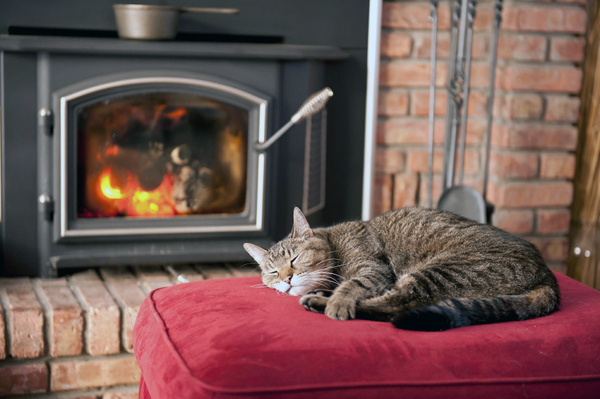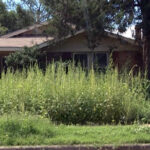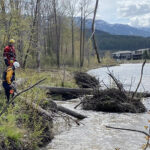Home »

Central cities get funding for wood stove exchange
Cranbrook and Kimberley are among 14 British Columbia communities receiving B.C. government funds to aid wood stove exchange programs. The Town of Golden is also in on the funding.
Wildsight Kimberley/Cranbrook is receiving $13,500 to run the program in the two cities.
Government is providing a total of over $192,000 in grant funding to 14 communities/regional districts to encourage residents to replace their old wood stoves with cleaner burning models that will improve personal health and air quality, Environment Minister Terry Lake announced last week.
The goal is to have close to 700 stoves exchanged across the province in the coming year.
Since 2008, the B.C. government has partnered with the BC Lung Association to run the Provincial Wood Stove Exchange Program. To-date, the B.C. government has put over $1.8 million towards the program, which has resulted in over 5,000 old wood stoves successfully replaced.
There are approximately 116,000 older model stoves currently in use around the province that can affect the health of homeowners, their neighbours and overall air shed health. As the nights get longer and the weather gets colder, many British Columbians will be sparking up these wood-burning stoves for warmth; however, before doing so, it is important to remember some helpful tips to make burning more efficient while maintaining good air quality and personal health.
For example, always use dry well-seasoned wood that is cut into small pieces – seasoned wood can provide as much as 15 per cent more heat than the same amount of unseasoned wood. It also significantly reduces air pollution. By burning smaller, hotter fires to ensure complete combustion of the wood, there should be very little visible smoke coming from the chimney and no smell of smoke indoors. It is also important to have any wood-burning appliances inspected and cleaned at least once a year by a certified technician.
“It is important to replace old wood stoves with newer, cleaner burning models, not just for air quality but also for personal health. That’s why the BC Lung Association supports the Provincial Wood Stove Exchange Program, which I hope will encourage many homeowners to upgrade their stoves,” stated Kootenay East MLA Bill Bennett.
“Through our wood stove exchange program, we are committed to reducing the number of old, inefficient wood stoves in B.C. and replacing them with more cost-efficient, environmentally friendly models. By upgrading to a new stove and following the tips to burn smarter, British Columbians can ensure better air quality in their communities and a more positive effect on their own health,” said Minister of Environment Terry Lake.
Scott McDonald, CEO, BC Lung Association added, “The BC Lung Association is extremely supportive of the woodstove exchange program and our ongoing partnership with government and participating communities. Smoke created by wood stoves is associated with many respiratory problems that can seriously impact one’s health, and we are pleased with the program’s continued success in helping to alleviate health concerns by replacing old stoves with cleaner, more efficient appliances.”
In B.C., all new wood stoves and inserts sold must meet U.S. Environmental Protection Agency (EPA) or Canadian Standards Association (CSA) emission standards.
New emissions-certified wood stoves burn one-third less wood; and reduce smoke and particulates entering the atmosphere by up to 90 percent.
More than 5,000 wood-burning stoves have been replaced by cleaner burning models since the Provincial Wood Stove Exchange Program began five years ago – this equates to a reduction of more than 310 tonnes of particulate matter pumped into the air.
There are approximately 116,000 older model stoves currently in use around the province that can affect the health of homeowners, their neighbours and overall air shed health. As the nights get longer and the weather gets colder, many British Columbians will be sparking up these wood-burning stoves for warmth; however, before doing so, it is important to remember some helpful tips to make burning more efficient while maintaining good air quality and personal health.
For example, always use dry well-seasoned wood that is cut into small pieces – seasoned wood can provide as much as 15 per cent more heat than the same amount of unseasoned wood. It also significantly reduces air pollution. By burning smaller, hotter fires to ensure complete combustion of the wood, there should be very little visible smoke coming from the chimney and no smell of smoke indoors. It is also important to have any wood-burning appliances inspected and cleaned at least once a year by a certified technician.
Learn more
Find out more about the Provincial Wood Stove Exchange Program, smoke management in the province and current air quality conditions across the province: https://www.bcairquality.ca
BC Lung Association tips for wood burning and your health: https://www.bc.lung.ca/airquality/wood_burning.html
e-KNOW







